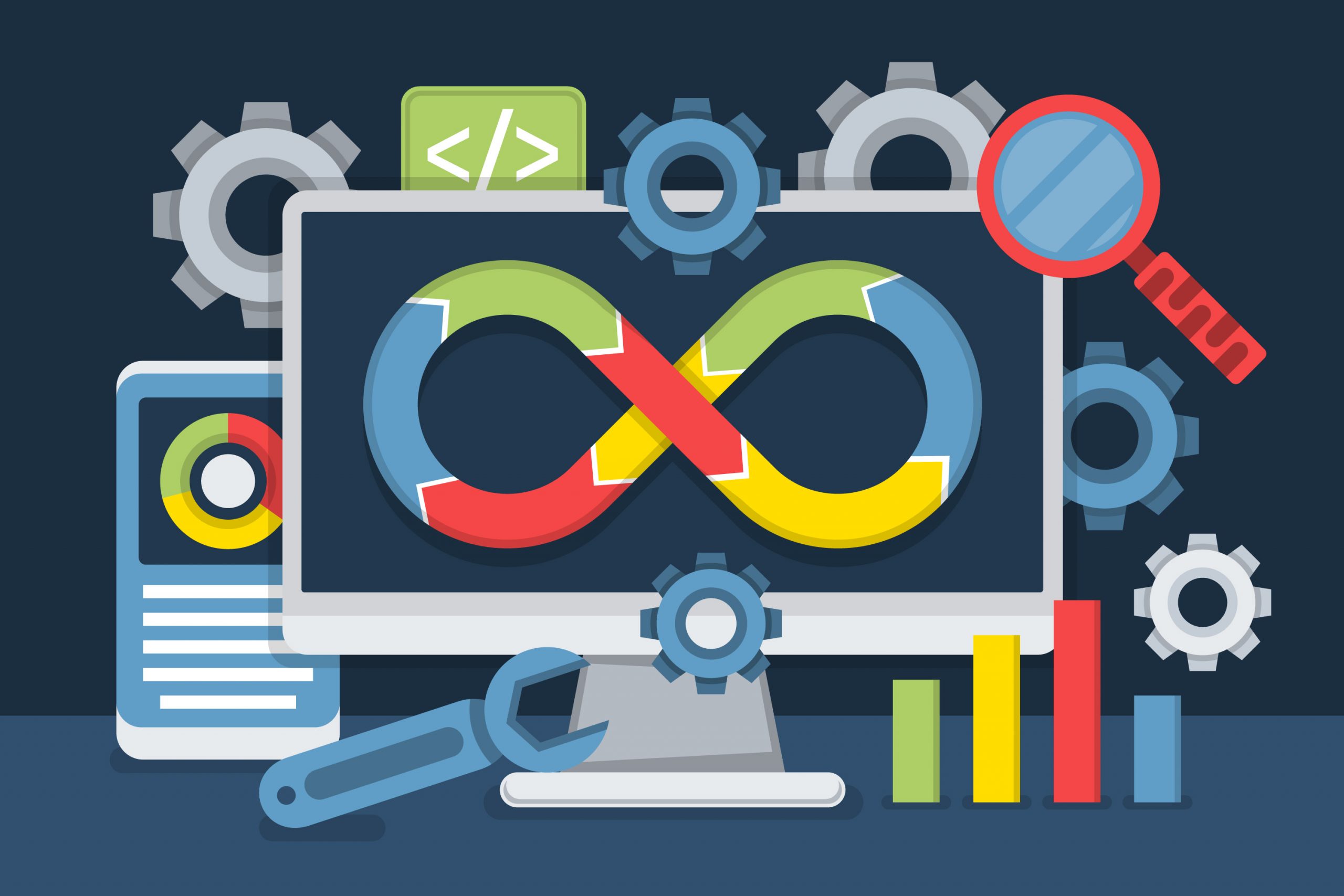Introduction
DevOps is a system of workflow that integrates the development process with the operations department. The continuous communication between the management processes and the execution ensures that the customers are more satisfied and experience a smooth hurdle-free experience.
Tools of DevOps automate processes such as identifying and resolving bugs, increase the speed of the monitoring, oversee update requirements, test and help in improving the overall quality of the developmental stages of the applications. This leads to faster time-to-market, higher product quality, and fewer software failures or rollbacks.
You can’t order DevOps Tools in a box. No one tool can provide all the capabilities needed to support a DevOps practice or pipeline. However there are some key areas to consider when choosing tools and products for your organization’s needs and specific DevOps goals. These goals typically vary according to the organization’s structure, operations, and environment.
How to choose the Right DevOps Tools ?
Few things to consider while choosing an appropriate tool are:
- Application and Technology Infrastructure: What computer systems do you work on ? Will the tool be compatible with the software and platforms you use ?
- Developer Process Integration: Will the tool integrate with your current development tools, IDEs ( Integrated Development Environments ), ALM ( Application Lifecycle Management ) and project management platforms ?
- Open and Broad Integration: Can the tool integrate with various DevOps pipeline technologies such as: Testing frameworks (Selenium, TestNG, Jest, JUnit, Mocha, etc.), Communication platforms ( Slack, Teams, etc.), Project management systems ( Jira) and CI & CD (Jenkins, CircleCI, GitHub ) ?
- Ease of Use and Scalability: Is your team capable enough to pick up and learn the tool ? Will the software scale flexibly as your organization grows ? Is it concordant with your growth plan ?
- Licensing vs. Cost Models: What will be the cost for licensing the software and utilizing it ? Be sure to consider hidden costs – free tools may be costless in the licensing but expensive in the resources needed to utilize them.
Top Tools
Katalon TestOps: This is a platform for automated testing that includes test management, planning, execution and quality analytics. It connects the team to feedback loops that are instant, actionable and insightful.
Kubernetes: This is an open-source system for automated deployment, scaling and management of containerized applications. It schedules workloads onto cluster nodes and actively manages them to ensure their state matches the user’s intentions.
Docker: This technology stack allows DevOps teams to create, operate and ship container-based distributed applications. It allows enterprises to develop applications, exchange container images and collaborate with users.
Ranorex Studio: This is a test automation tool for testing desktop, web and mobile applications. It is simple to use for beginners and at the same time very powerful for experts. It has a reliable capture-and-replay tool, drag-and-drop feature and code modules for keyword-driven testing.
Jenkins: This tool helps keep an eye on the progress of repetitive tasks. It has hundreds of plugins available to assist with the creation, automation and delivery of projects
Azure DevOps: This Microsoft Platform features an end-to-end DevOps toolchain. It integrates with most of the leading tools available in the market.
Ansible: This toolkit has support for the orchestration, automation, configuration and management of IT infrastructures. It is scalable and can respond to the changes in demand.
Chef: This tool helps you use code to express infrastructure, security policies, and application life cycles. This helps in the modernizing of the application’s development, packaging and delivery.
Last Words
In this article we have tried to inform you of the factors to consider while choosing a DevOps Tool. We have listed the features of some popular tools.
DevOps is an excellent amalgamation of the development processes and operations. With computerized tools, the benefits are that much more amplified.
Offering several benefits, from automating mundane tasks, helping in the monitoring and improving team collaboration—the right set of DevOps tools can be a true game-changer. Thus, if you choose wisely, your DevOps toolkit can be the foundational framework of your workflows on which you can build a hugely successful enterprise.
